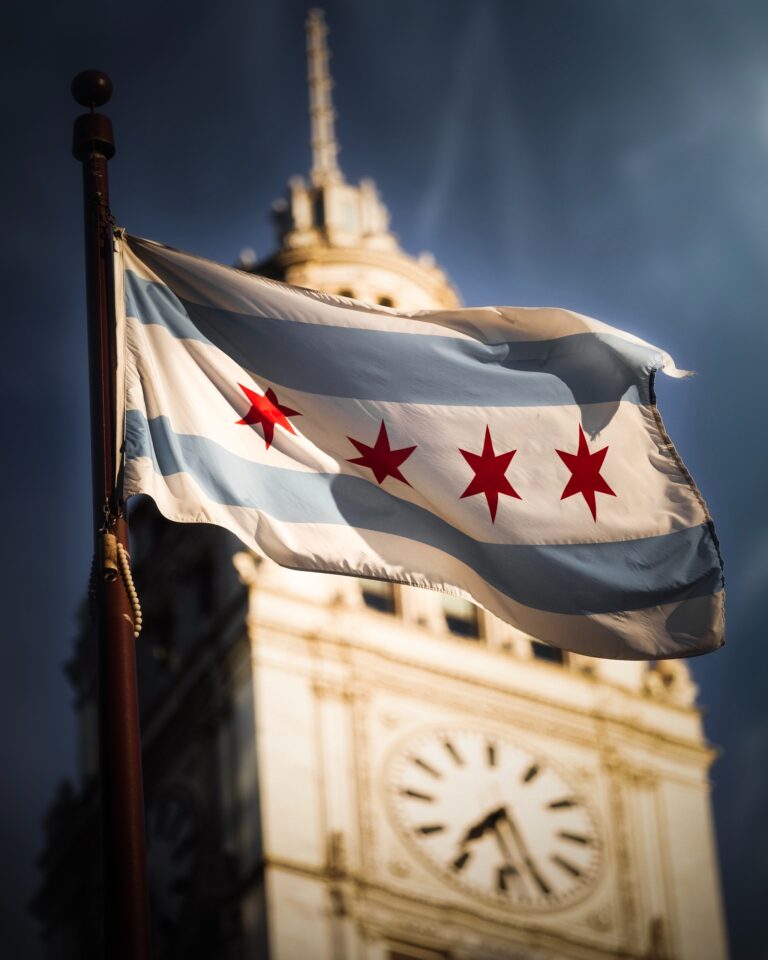We help short term rental investors earn more and work less.




The Latest Chicago Short-term Rental Ordinances that You Can't Afford to Ignore
If you’re thinking of opening an Airbnb in Chicago, or you already have a few units running, make sure you’re abreast with the latest rules. The city government passed amendments in 2020 that took effect last summer. The penalties for non-compliance are pretty steep. You’ll want to familiarize yourself as much as you can with current Chicago short-term rental ordinances.

Short-term Rentals Chicago
It’s easy to see why people want to invest in Chicago short-term rentals. The Windy City is an economic powerhouse, livability is great, and tourism has bounced back since June.
But Chicago has been tightening restrictions on Airbnbs in recent years, in an ongoing effort to prevent disruptive party houses.
One-night stays are still banned, and owners can still lose their license after only a single “egregious” incident or two complaints within a year. Hosts could also face fines ranging from $5,000 to $10,000 if their property is found being used for a party, “gang-related activity”, drug trafficking or prostitution.
City of Chicago Short-term Rental Ordinance
Last year’s amendments require hosts to now register and renew their businesses directly with the Department of Business Affairs and Consumer Protection (DBACP), instead of home-sharing platforms like Airbnb, VRBO and other home-sharing platforms.
According to city officials, this would make it easier for them to hold property owners more accountable for loud parties and other neighborhood nuisances.
The City has an online House Share Registration Portal where you can apply for registration. It’s also where guidelines and supporting materials can be obtained.
If you’re a host of a short-term residential property in Chicago, you may fall in one or more of these 5 categories:
- shared housing host
- shared housing operator
- vacation rental
- bed and breakfast
- hotel

For hotels, B&Bs, and vacation rentals, there’s a special requirement: a license from the City’s Municipal Code Department.
When you apply for a license, you have to submit the following requirements:
- If your property is subject to restrictions by your homeowner’s association or board of directors, an attestation that the HOA or Board hasn’t adopted by-laws prohibiting its use as a vacation rental or shared housing unit.
- If your unit is subject to a rental agreement, an attestation that the owner of the building where your unit is located hasn’t prohibited its use as a rental.
- A proof of insurance for a.) homeowner’s fire, hazard and liability; and b.) commercial general liability, with limits of not less than $1M per occurrence.
- A license fee, which costs $125 per unit per year — up from $60, according to the latest rules.
Study this Fact Sheet to get all the information you need before applying for a license. Fees are tiered, ranging from $5,000 to $10,000 depending on the number of units you rent out.
The City will then schedule an inspection of your proposed business location 5-10 business days after you pay the fee. Once approved, you’ll be given a license and the permission to list your property on online booking channels. Be sure to post the license number in your listing advertisement.
You’ll have to renew that license annually, too. If you fail to do so, you may be subject to penalties or your license may be revoked.
The ordinance states that any person or company found operating a vacation rental without a proper license may be fined from $2,5000 to $3,000 per violation. And each day the violation continues counts as a separate and distinct offense. So the fines can compound pretty fast.
Go to the City’s Business Licensing Page for precise details on fees and process instructions.
Also, consult the Chicago Zoning Ordinance to see if your planned rental will be allowed in your chosen location. Aside from zoning laws, the current ordinance also limits the number of units that can be rented in large buildings.

Area-specific Rules
Obviously, not all parts or buildings in the city allow Airbnbs. In West Chicago, for example, short-term rentals are permitted only in single-family detached homes. Townhomes and duplexes may be allowed but they must first be approved and granted a Special Use Permit from the City Council.
In other districts, home-sharing is altogether banned in certain precincts. Those in the 13th Ward, which includes sections near the O’Hare and Midway Airports, recently renewed a pre-existing ban on short-term rentals. Marty Quinn, the alderman for that Ward, authored a couple of ordinances redesignating as many as 21 precincts “restricted residential zones”.
Under the latest Chicago short-term rental ordinances, such zones will be expanded this year, allowing residents to petition city officials to ban new rentals in their areas.
A precinct can be designated “restricted” once 25% of registered voters in the area sign a petition. This shows that residents have a lot of say in approving or disapproving Airbnbs in their neighborhoods.
Chicago Airbnb Tax
According to current Chicago Airbnb rules, State, County and City taxes are imposed whenever guests book a reservation.
Cook county applies a 1% Hotel Accommodations Tax for reservations fewer than 30 nights. That tax already includes a cleaning fee.
The City of Chicago imposes a 4.5% Hotel Accommodations Tax and a 4% Shared Housing Surcharge. In 2018, a 2% tax was also added to fund services for people experiencing domestic violence.
The State of Illinois also requires hotel taxes to be paid.

Conclusion
Because of Covid-19, Chicago saw a significant decline in visitor travel last year. But tourism is bouncing back and the number of business travelers and tourists picked up last summer.
The good news is, rentals in the city have been outperforming hotels because travelers are trying to avoid crowded buildings.
But with close to 9,000 registered vacation rentals and shared housing in Chicago, officials are determined to regulate every single one of them. And the fines can be costly.
As responsible entrepreneurs, we encourage you to comply with the rules. And it’s critical that you remain up to speed with new developments because they do change from time to time. You don’t want your business causing you more headaches and penalties than revenue!
If you need assistance managing your rentals, let us help. Cohostit provides turnkey management services — from marketing to cleaning, optimization to issue resolution. All the day-to-day tasks that can make short-term renting a bit complex, challenging, and tedious.
Click here to book a call and see if you qualify.
